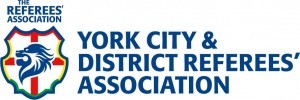Dissent
Law 12 (Fouls & misconduct ) states:
“A player is cautioned and shown the yellow card if he commits an offence of dissent by word or action”.
Furthermore, advice/guidance offered in the Laws states:
“A player who is guilty of dissent by protesting (verbally or non-verbally) against a referee’s decision must be cautioned.”
Dissent can be direct or indirect.
| Direct – open, loud and clear use of word or gestures intended to question, contest, undermine or call your decision making or management of the game into question. In this case decisions are questioned and there is open disagreement towards you. Such actions may also be hostile in nature, eg. | |
|
|
| In each case we need to identify how loud the comment was or how obvious the gesture, what distance it occurred from the referee/assistant and whether it was angry, hostile or aggressive. In almost all of the above cases, the correct course of action is to issue a caution. | |
|
|
| Positive Response Caution | |
| Indirect – underhand comment crafty jibes or gestures made from one player to another or said discreetly or quietly towards you. Again the player is trying to make a point but in a more subtle way, but these are still designed to upset your control of the game. | |
| Such examples of this might be: | |
|
|
|
|
|
|
|
|
|
|
| Positive Approaches Quiet / Public Word | |
| You cannot afford to ignore any element of dissent and the above comments or gestures might not warrant a caution, but they do need you to be positive. A glance and slightly maintained stare might be enough to make a player think about future comments. | |
| A quiet word to the player who has made a comment about a decision is being proactive and the more public rebuke is always a good technique to use in order to send an important message to all that you will not tolerate obvious dissent. | |
Dissent must never be ignored, do so at your peril. Certainly, during the early stages of the game be proactive, be responsive and deal with open dissent in a thoughtful, positive and purposeful manner.
Note that if offensive, insulting or abusive language is used in dissent, then the player must be sent from the field of play.
Some solutions out in order to reduce dissent during a game:
- · Accurate decision-making
- · Proximity to open play
- · Preventative refereeing
- · Get some rapport with the captains before you start
- · Use dead ball time to communicate with players if necessary, particularly early in the game
The Stepped Approach
| The Stepped Approach (Respect programme) |
| Step 1 – Quiet Word |
| You educate the player that what they have said is unacceptable and if they persist, they will face further action |
| Step 2 – Involve the captain or senior member of the team |
| Explain to them that this is the second time you have spoken to the player and that as a senior player they have a collective responsibility for their team. |
| Step 3 – Use of sanctions in accordance with the Laws of the game |
| Remember that if you feel dissent, by word or action is beyond your tolerance level, you can come in at whichever step as appropriate. The sooner you act on any form of dissent and set your tolerance levels, will determine the way the game develops. |
The Stepped Approach shows everyone that you have given the player every opportunity to calm down and so when a card becomes necessary there is no surprise.
Whichever sanction you feel is appropriate, it is critical that you remain calm and professional even n the most testing of situations. If the referee is not calm or is flustered he cannot expect the player to be so.
